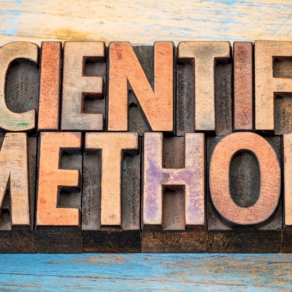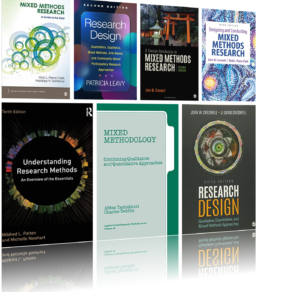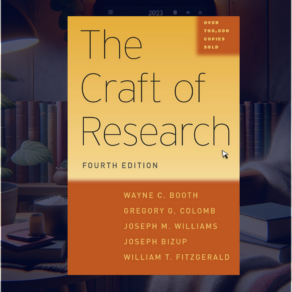In the field of science, there are a variety of books that explore and discuss the scientific method. From Karl Popper’s groundbreaking work on falsificationism to Thomas Kuhn’s influential ideas about scientific revolutions, the scientific method books offer valuable insights into how scientists think and work. Other works such as Paul Feyerabend’s Against Method provide an interesting critique of traditional approaches to scientific research.
This post explores some of the most essential books on the scientific method. These titles offer readers an opportunity to gain a deeper understanding on the history, philosophy and practice behind modern day science. For a brief summary of what the scientific method means, check out my post entitled The Scientific Method Worksheet.
Table of Contents
1.The Logic of Scientific Discovery, by Popper, Karl
In this seminal work, Karl Popper introduces the concept of falsifiability as a criterion for demarcating scientific theories from non-scientific ones. He argues that scientists should aim to disprove, rather than confirm, their hypotheses to advance scientific knowledge. Popper’s ideas have profoundly influenced the philosophy of science.
2. The Structure of Scientific Revolutions, by Thomas Kuhn
Thomas Kuhn’s groundbreaking book examines the process by which scientific paradigms change. Kuhn proposes that science progresses through distinct stages: normal science, crisis, and revolution. This work has transformed the way we understand scientific progress and the role of paradigms in shaping scientific knowledge.
3.Scientific Method in Practice, by Hugh Gauch
This book offers a comprehensive, practical guide to the scientific method, emphasizing the importance of hypothesis testing, experimental design, and data analysis. Gauch provides examples from various scientific disciplines and discusses the philosophical foundations of the scientific method.
4. What is this thing called Science?, by Alan Chalmers
Chalmers’ book presents an accessible introduction to the philosophy of science, exploring different scientific methods, theories, and their underlying assumptions. He examines the demarcation problem, induction, and other key philosophical issues, fostering a critical understanding of the scientific enterprise.
5. How to Think About Weird Things, by Schick, T., & Vaughn,
This book equips readers with the tools to critically evaluate extraordinary claims and pseudoscience. Schick and Vaughn provide an engaging introduction to critical thinking, scientific skepticism, and the importance of evidence-based reasoning.
6. Laboratory Life, by Latour et al
This book provides a sociological and anthropological perspective on the construction of scientific facts. The authors offer a detailed examination of laboratory practices and argue that scientific facts are socially constructed through negotiation, persuasion, and the alignment of interests.
7. Against Method, by Paul Feyerabend
Feyerabend challenges the idea that there is a single, universal scientific method. He argues that scientific progress is often achieved through a diverse and anarchic mix of methods, and that strict adherence to a prescribed method can hinder scientific advancement.
8. Criticism and the Growth of Knowledge, Lakatos, I., & Musgrave, A. (Eds.)
This collection of essays explores the role of criticism in the development of scientific knowledge. The contributors discuss the works of Popper, Kuhn, and others, and debate the merits of falsificationism, research programs, and the nature of scientific revolutions.
9. Real Science, by Ziman, J. (2000)
This book examines the social, historical, and philosophical aspects of scientific practice. Ziman argues that science is a social institution, shaped by its cultural context and driven by the collective pursuit of reliable, objective knowledge.
10. Understanding Philosophy of Science, by Ladyman, J.
This accessible textbook provides an overview of the main issues in the philosophy of science, including the demarcation problem, the nature of scientific explanation, and the realism-antirealism debate.
Ladyman also discusses the works of influential philosophers of science, such as Popper, Kuhn, and Feyerabend, offering readers a well-rounded understanding of the subject.
11. The Scientific Method: A Guide to Finding Useful Knowledge, by J. Scott Armstrong, Kesten C. Green
This essential reference discusses the eight criteria for proper scientific practice and provides practical guidance to help stakeholders, such as scientists, administrators, funders, and policymakers, encourage research that produces useful discoveries. The book also assists journalists, commentators, and lawyers in assessing the validity of scientific claims, while offering recommendations for reforms in science policy and administration.
12. A Beginner’s Guide to Scientific Method, by Stephen S. Carey
This concise yet comprehensive guide introduces the scientific method of inquiry, teaching readers the proper conduct of science and how to recognize and question factors like pseudoscience, untestable explanations, and fallacies. The book is ideal for use as a supplementary or core text, assisting users in designing and assessing experiments using the scientific method.
13. The Scientific Method: An Evolution of Thinking from Darwin to Dewey, by Henry M. Cowles
This book explores the intertwined histories of evolution and experiment, tracing the development of the scientific method from Charles Darwin’s theory of natural selection to John Dewey’s vision for science education. It reveals how the scientific method was once considered a natural process and adaptation, before being reimagined as a means of controlling nature, symbolizing science’s power over it.
14. Exploring the Scientific Method: Cases and Questions, edited by Steven Gimbel
Exploring The Scientific Method challenges the conventional understanding of the scientific method as a linear, step-by-step process. Instead, the book offers a more realistic view of how science works in practice, using case studies and questions to guide students in exploring the intricacies of scientific inquiry.
Through these cases and discussions, Gimbel aims to equip students with the tools to understand the actual workings of the scientific method, emphasizing the flexible and dynamic nature of scientific investigation rather than a rigid, predetermined formula. By engaging with real-life examples, students will gain a deeper understanding of the complexities, variations, and adaptability inherent in the scientific process.




















